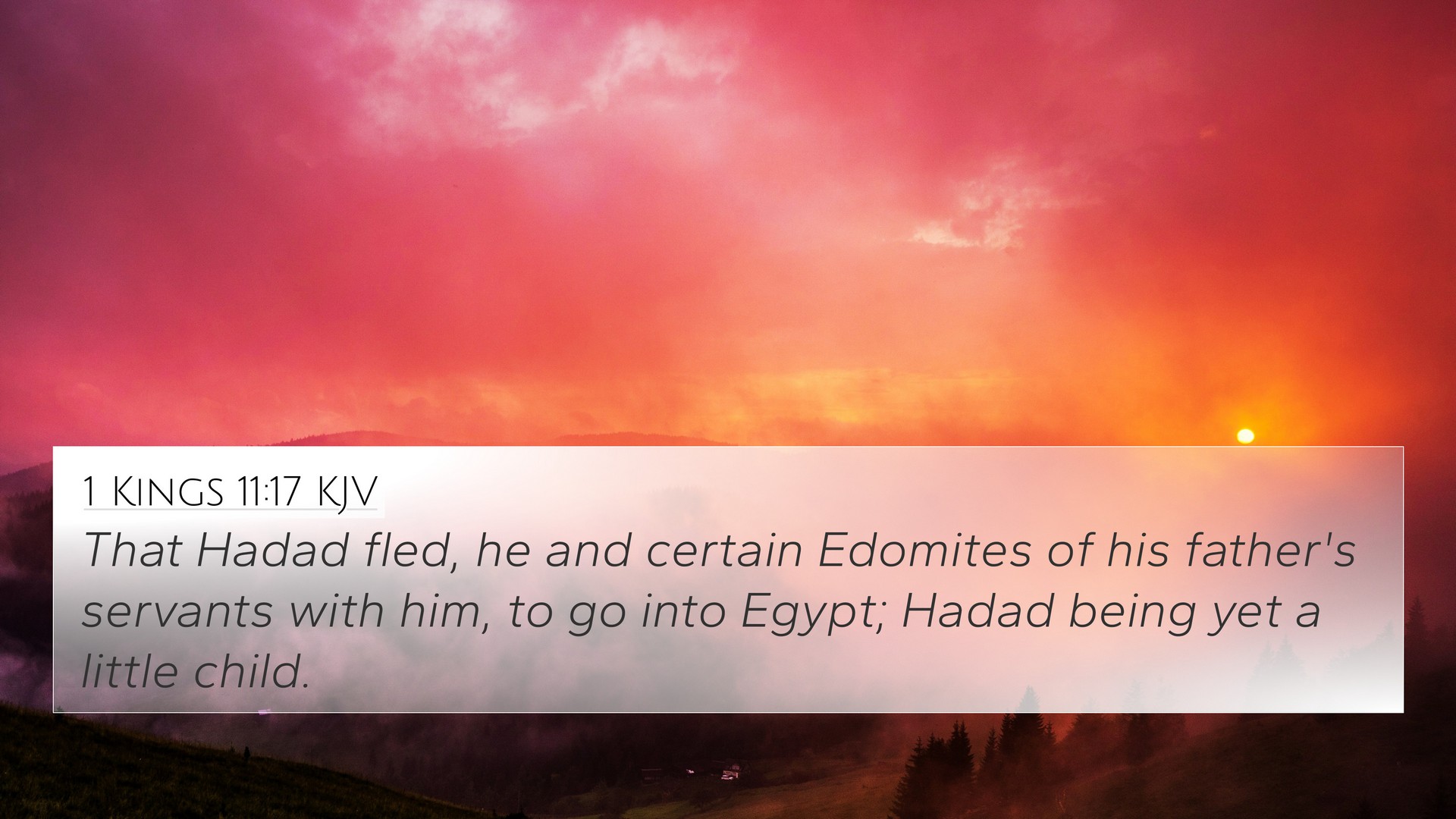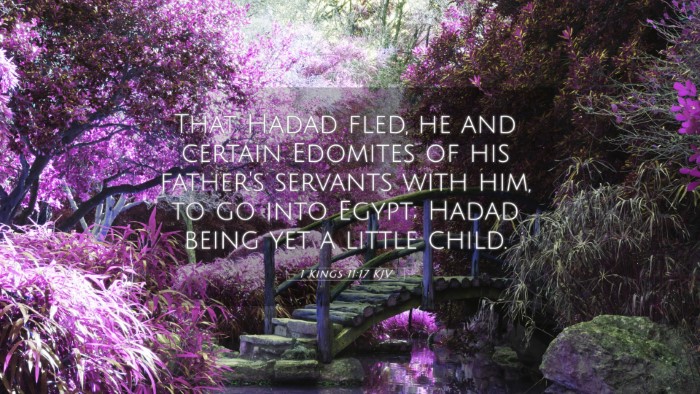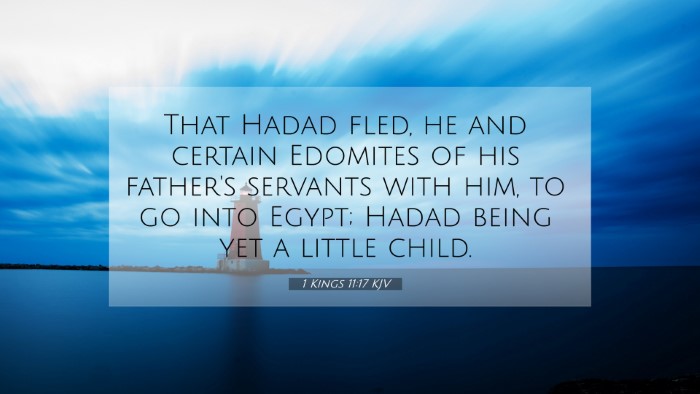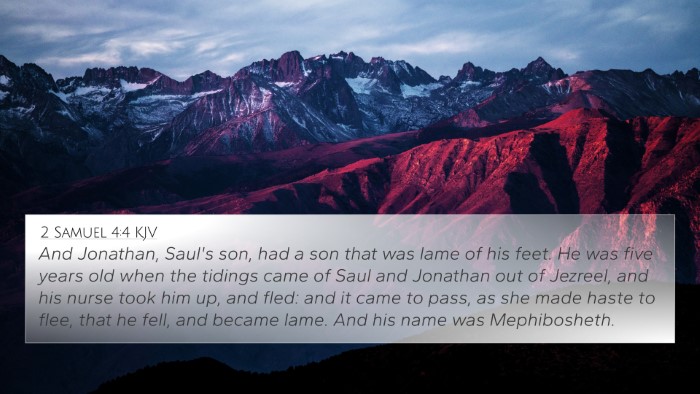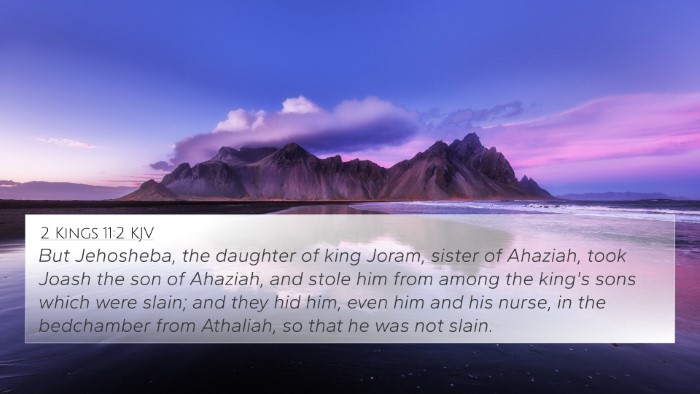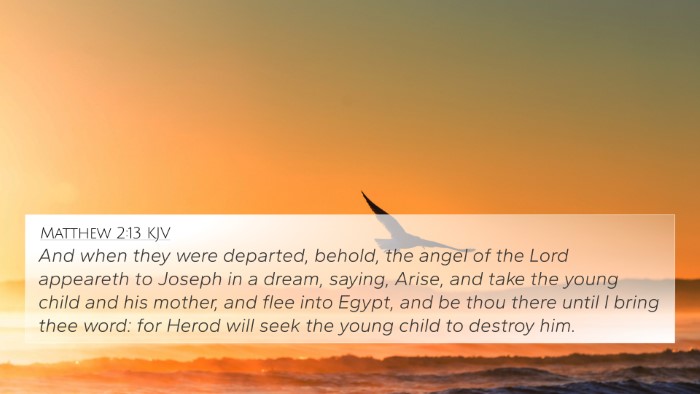Understanding 1 Kings 11:17
Bible Verse: 1 Kings 11:17 (KJV) - "That is, Hadad fled, he and certain Edomites of his father’s servants with him, to go into Egypt; Hadad being yet a little child."
Summary and Interpretation
This verse captures a significant moment in the narrative of the Old Testament, specifically involving Hadad, the Edomite. The details highlight Hadad's early life, his escape from the reach of King David, and the tensions that existed between Israel and Edom. Public domain commentaries provide various insights into this verse, which we will summarize below.
Matthew Henry's Commentary Insights
Henry notes that Hadad's flight represents the ongoing conflict between Israel and Edom. His escape signifies the survival of the Edomite identity even after David's conquest. This moment foreshadows future conflicts as Hadad later returns to challenge Israel's authority.
Albert Barnes Commentary
Barnes emphasizes Hadad’s significance as a foil to Israel’s monarchy. His status as a child escaping to Egypt highlights the fragility of power and the potential for resurgence against stronger nations. The Edomites' struggle against Israel illustrates the broader theme of enmity outlined in the biblical narrative.
Adam Clarke's Analysis
Clarke elaborates on Hadad's background and the implications of his escape. He notes that Hadad’s flight signifies divine protection and the assurance that God’s purposes through historical events are fulfilled regardless of human atrocities or disobedience. Clarke remarks on the prophetic elements of this narrative, as Hadad’s return would later fulfill God's judgement on the nation of Israel.
Cross-References
This verse connects to various other scripture passages that illuminate its themes of conflict, divine purpose, and the survival of nations:
- Exodus 15:15-16 - Discussing the fear of the Edomites and their reaction to Israel.
- 2 Samuel 8:14 - Reference to David's military victories over Edom.
- 1 Kings 11:14-22 - The broader narrative of opposition against Solomon.
- Genesis 36:1-43 - The genealogies of the Edomites.
- Numbers 20:14-21 - Israel's demands against Edom and the resulting conflict.
- Amos 1:11 - God's judgements against Edom for their violence towards Israel.
- Malachi 1:2-3 - Acknowledgment of God’s love for Jacob but hatred for Esau, the father of the Edomites.
Thematic Connections
This verse and its cross-references can be studied under various thematic frameworks including:
- The Divine Sovereignty: God's control over nations and rulers.
- Conflict and Resolution: The historical enmity and its implications for the future.
- Identity and Survival: How national identities persist and thrive despite oppression.
Importance of Cross-Referencing in Bible Study
Cross-referencing Bible verses provides deeper insights into scriptures. By connecting 1 Kings 11:17 with the related verses, one can unveil the themes surrounding conflict, divine purpose, and the cyclical nature of national power in biblical history. Using tools for Bible cross-referencing, such as concordances, can significantly enhance your understanding as you explore the interconnections within the scriptures.
Practical Methods for Cross-Referencing
- Bible Concordance: Utilize a concordance to find keywords related to your verse.
- Study Guides: Use Bible study guides that offer thematic cross-references.
- Group Studies: Discuss and analyze inter-Biblical connections in group settings for diverse insights.
- Online Resources: Explore comprehensive Bible reference resources for deeper analysis.
Conclusion
1 Kings 11:17 provides a profound glimpse into the dynamics between Israel and Edom, illustrating the importance of recognizing historical context in biblical narratives. Through cross-referencing related verses, the reader can better understand the implications of Hadad's story within the broader themes of conflict, identity, and divine purpose in scriptural history.
Further Study and Reflection
As you delve into this passage, consider how the lessons learned apply to contemporary issues of conflict and cultural survival today. Reflect on the nature of power, resilience, and the unfolding story of divine sovereignty in the lives of nations.
